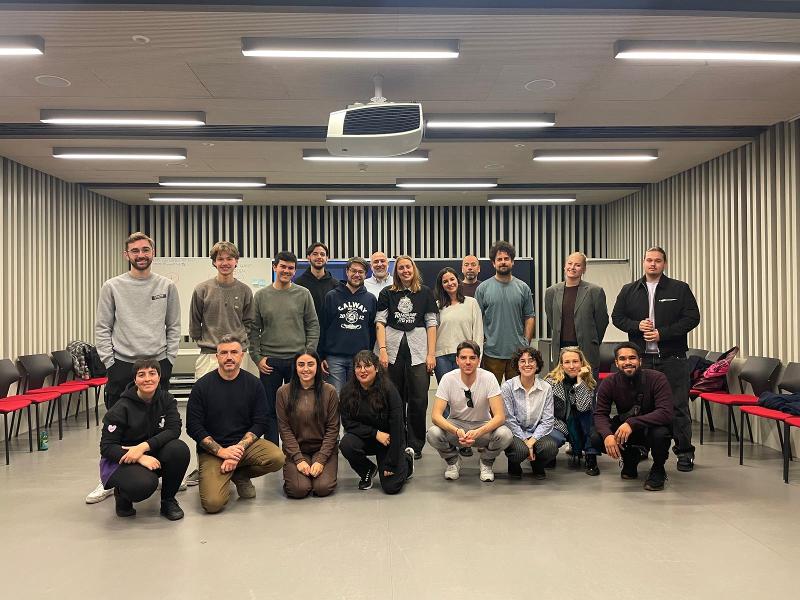Ways of Europe takes Budapest: deconstructing oppression from the frontlines
When one door closes, another opens. In Hungarian it’s Ha az egyik ajtó bezár, egy másik kinyílik, but we say: once an experience ends, the next will come - and we can’t wait for that to happen.

From November 5th to 7th 2025 Ways of Europe traveled to Budapest for the transnational event hosted by Faktor Terminal and the Subjective Values Foundation, the Hungarian project partners. What brings together seven different languages, shared journeys, and countless personal experiences? A common desire to make our voice heard and take action for change.
On November 5th, the group spent the day in Ezstergom, at the Children’s Home center, where Faktor Terminal works daily with young girls coming from challenging backgrounds. The Association’s activity combines art with a wealth of humane dedications, where the social worker’s only aim is to give childhood the dignity it naturally deserves. Here, Europe means teaching to give yourself a second chance and preventing youth from manipulation and social confinement. The screening of the in-house movie ÁrvÁtom: An Orphan’s Dream, offered a glimpse into what it implies to socially act through art and drama, when a national government rows in your opposite direction.
The second day, November 6th, the focus shifted to the Central European University in the heart of Budapest. Subjective Values Foundation led a day of discussions and hand-on activities exploring the informal – yet no less vital- side of the democratic dream. The day began with interactive workshops and lively exchanges of personal stories and public engagement. Founder Marcell Lorincz recalled the significance of the university that hosted us, and outlined the foundation’s aims in Hungary: supporting an ongoing dialogue between cultures, creating a sustainable society as well as promoting European ideals. To be for the people was the shared motto: the community’s sustainers are encouraged to reflect on their personal experience before acting in a way that is impactful. Mediating belongs to an ethic of respect and resilience, to the courage of taking a step backwards to host a new culture and move beyond stereotypes.
A panel session discussion fanned the flame of the democratic conscience and activism amid the group. Panelists involved in the frontlines of solidarity and human rights in Hungary, shared their daily engagement in the intercultural mission. United, Artemissziό, She4She and Genocide Prevention Associations stressed the necessary European communities’ empowerment: people must be reconvinced of their civic value and power to make decisions and disentangle the subtle government oppressive methods used to silence resistance. Change sprouts from the fall of polarization and binarism, from the questioning of who we are first, before asking the other.
The final making of our Budapest Declaration reminded that nobody stands alone in the democratic struggle for change: oppression may have a single name and face, but beneath it lies a broader web of cultural, social, linguistics and economic inequalities. Action and community are the route forward. The newborn manifesto reflected a dialectic workshop on democracy, solidarity, rule of law and peace and migration, as much as a plethora of goals and scenarios for a Europe grounded in freedom and respect.
On November 7th, the Altera association guided the group through an evaluation of the three-day project. Retracing our steps, our actions and thoughts is, in itself, an undeniable lesson in democracy: there’s always room for improvement. Societies that endure are those willing to constant change and with a metareflective propulsion, as deconstructing mistakes can’t cast them into oblivion but ignite the progress.


